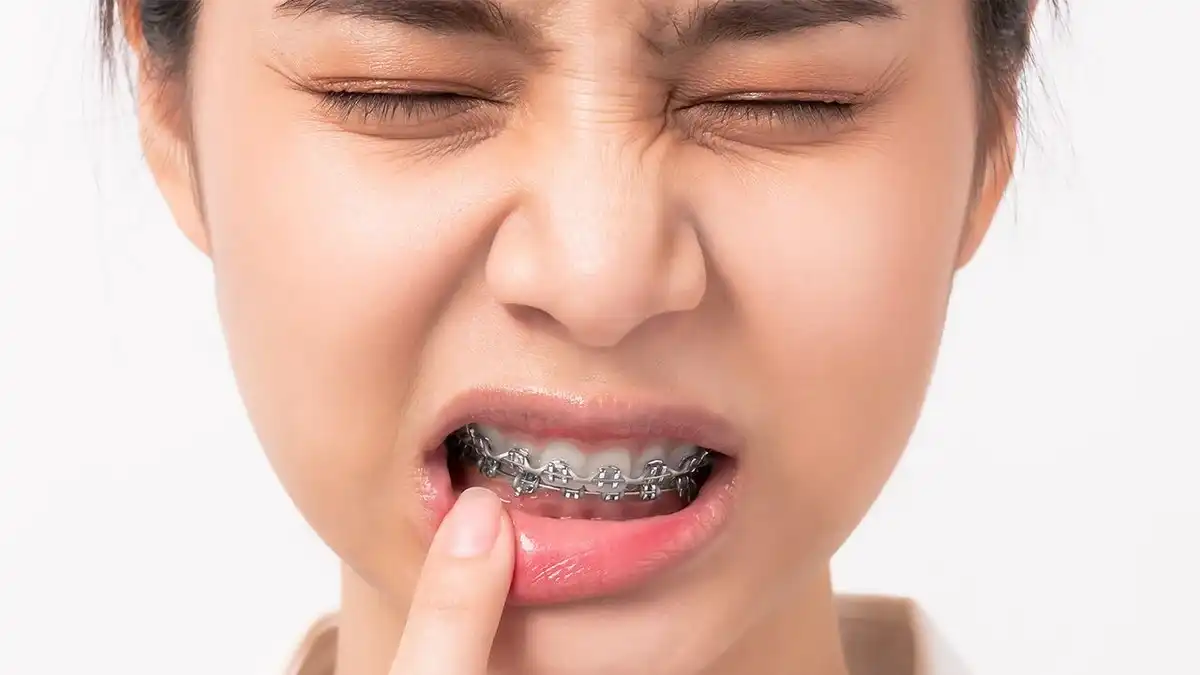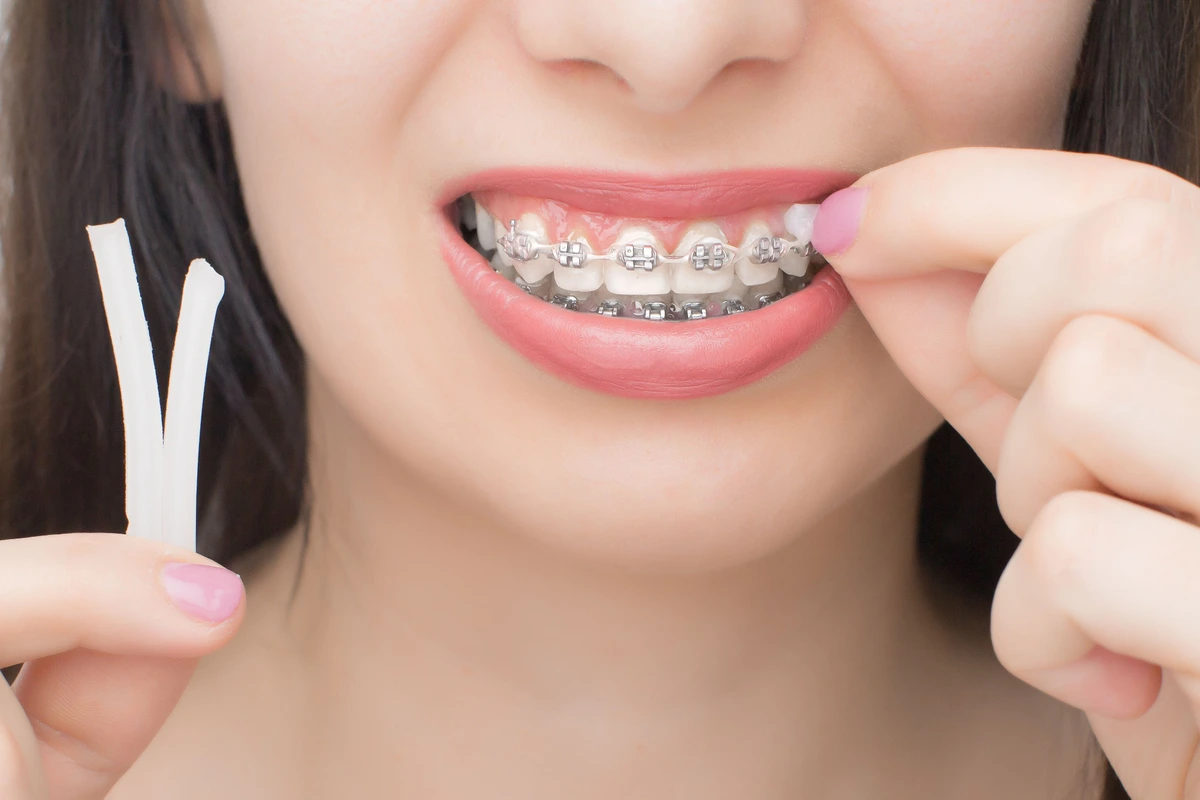How Long Do Braces Hurt & What to Expect


Wondering what to expect with braces? Maybe you’re an adult wondering “do braces hurt” before you schedule your child’s orthodontic treatment consultation. Or perhaps you’re thinking about getting them for yourself. What’s it like wearing braces, is the process similar to the way it’s always been, and do braces hurt? We’ll break it down for you…
Why Do Braces Hurt And How Long Do Braces Hurt?
One of the most common side-effects with braces is pain or discomfort. While they can be pretty uncomfortable at times, the soreness or pain you’re expecting to feel will be different for everyone. And it’s only temporary.
First, let’s talk about braces pain, and soreness. Whenever your teeth are being moved with braces, it’s normal to be a little sore. Mostly because of the tiny little ligaments around your tooth that are being (safely) stretched. Fortunately, the soreness only lasts a few days after each adjustment.
What To Expect With Braces
The main thing to expect with braces is that your mouth will probably be sore the first day right after your braces are put on (for a couple of days) and each time they’re “adjusted.”
Since braces work by physically moving your teeth, those little ligaments around your teeth get stretched out and sore. This can make your entire mouth feel sore, that first day, but the good news is that the pain or discomfort wears off. Some people feel fine later that day, while others want to take Motrin for a couple of days.
Fortunately, it’s short-lived and well worth it!
1. Getting Braces Placed For the First Time
Once all of your brackets are attached, your orthodontist will place an “archwire” into each bracket and then affix a small band on top of each one to hold it in place. The archwire is what gives your braces their tension to move your teeth. If you have an “adjustment” it’s usually the archwire being changed out for a different one.
At this appointment, you’ll also get a home care kit and instructions on how to clean around your braces, as well as a list of what you can or cannot eat. The better you follow your instructions and stick to your appointments, the more efficient the process will be.
2. The First Few Days After Placement
The first few days immediately following your orthodontic installation process will be the ones that are most uncomfortable. Then again, some people don’t experience braces pain or feel uncomfortable at all!
A majority of people will feel at least some level of discomfort during these first several days. Being prepared with how to manage it and knowing what to expect will make the transition into orthodontic life as easy as possible.
- In the beginning, eat soft foods that don’t require a lot of heavy biting or chewing (such as yogurt, ice cream, mashed potatoes, etc.)
- Start taking ibuprofen (Motrin) as directed for at least the first 2-3 days.
- Be liberal in your use of orthodontic wax.
- Practice talking in the mirror, so that you’ll be more confident once you get back out in public.
3. Wearing Braces for the Few Weeks After Installation
The longer you wear your braces, the more comfortable you’ll feel. It's a good thing that braces pain rarely lasts longer than a few days. After a few weeks of sporting your new dental appliances, you’ll ideally forgot that they’re there most times. Aside from the occasional adjustments or if you’re changing a fixed appliance every day, you should be feeling back to your old self again (at least for the most part.)
4. Adjustments or Having Your Braces Tightened
Part of having braces is the act of physically moving your teeth. The braces are literally pushing and pulling your teeth and putting them into another position, even though it’s ever so slightly. That being said, it’s totally normal for your teeth and gums to be sore whenever your orthodontist has to make adjustments. Such as changing out the arch wire, putting on a “power band”, installing springs, or having you adjust your palatal expander.
Each movement, no matter how small, strains the location of your tooth. That’s why you never want to move your teeth too quickly; otherwise, the bone can’t remodel correctly and it can be damaging to your mouth. But monitored carefully and by a specialist, minor soreness just means your braces are working correctly.
5. Getting Them Off
I’m not going to lie. Getting braces taken off can kind of give some people the heebie-jeebies. Since your brackets are bonded onto each tooth, a special instrument is used to lift or “pop” the bracket off (without hurting your tooth enamel, of course.) After all of the brackets have been pulled off, your teeth might be a little sore afterward. Even the absence of something like a wire holding them in place can make them feel slightly sore whenever you’re biting down to eat.
Your orthodontist will probably recommend that you take an over-the-counter pain reliever before the appointment and then again later that evening.
How To Deal With Discomfort/Treat Pain From Braces
1. Take Pain Relievers
2. Use Orthodontic Wax.

You don’t want to have to rely on orthodontic wax for the entire duration of your treatment, but you don’t have to hold back using it either. Take a small pea-sized amount, roll it into a little ball between your fingers, then press it over the rough edge that’s irritating your mouth. As the weeks go by, you probably won’t need it as often, if at all.
3. Rinse with Warm Saltwater.
Warm saltwater rinses are a safe, easy DIY for relieving sore teeth and gums. Simply stir a teaspoon of table salt into a tall glass of water, then swish and spit until you’ve worked your way through all of it.
4. Eat Cold Foods or Smoothies.
You’ve got to be careful about this one, since the metal in your mouth might cause a zing with cold temps. But cool drinks and foods can ease soreness inside of your mouth.
5. Wait it Out.
Having sore teeth because of orthodontic visits is temporary. Teeth normally won’t hurt for more than a day or two, or maybe three at most after getting braces.
Talk With A Dentist
It is not normal for braces to hurt you so bad that you can’t eat or get up and go to school. Nor is it normal for something to be poking the inside of your mouth so bad that you can’t move or eat. Maintaining communication with your dentist or orthodontist is the most important thing to do when managing braces pain relief.
Your orthodontist/dentist can check to make sure that everything looks correct. Did a wire slip out of place? Or something break? And if your teeth are sore for days on end, you might need to get a second opinion from an orthodontic specialist (if you haven’t already.)
How Long Do Braces Hurt?
Do braces hurt? Occasionally, yes. Knowing what to expect with braces—like when you first get them put on or adjusted every month—will help. Have some Motrin on hand, keep orthodontic wax nearby if you need it, and know that this will not last forever. Remember the old saying, “You have to suffer for beauty?” In this case, you’re getting a beautifully healthy smile, but the “suffering” isn’t’ all that bad. Any minor soreness is totally manageable and well worth the tradeoff for healthier teeth.

Make your inbox smile!
Subscribe





